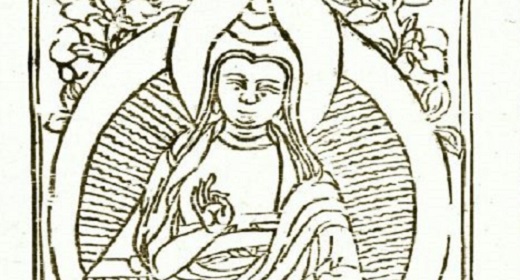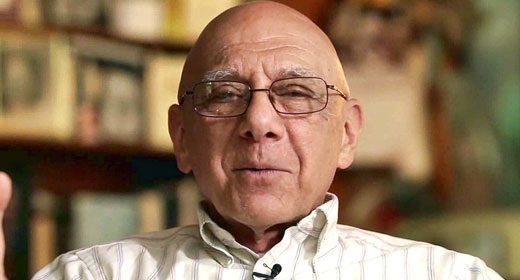by Joshua J. Mark; In his famous work Republic, Plato discusses the concept of the `True Lie’ or the `Lie in the Soul’.  Through a conversation between Socrates and Adeimantus (Plato’s brother) Plato defines the `true lie’ as believing wrongly about the most important things in one’s life.
Through a conversation between Socrates and Adeimantus (Plato’s brother) Plato defines the `true lie’ as believing wrongly about the most important things in one’s life.
The `lie in the soul’ can be understood as Plato’s answer to the Sophist Protagoras’ famous assertion that “Man is the measure of all things”, that, if one believes something to be so, it is so. Plato repudiated Protagoras’ claim in virtually every one of his dialogues and Republic is no exception.
The `true lie’ or `lie in the soul’ can best be explained this way: If one believes, at a certain point, that eating carrots with every meal is the best thing one could do for one’s health and, later, realizes that excess in anything can be a bad thing and stops the carrot-eating, that realization would have no long-term negative consequences on one’s life. If, however, one believes the person one loves is a paragon of virtue and then discovers that person is a lying, conniving thief, this discovery could undermine one’s confidence in oneself, in one’s judgment, in other people, and even in a belief in God, in so far as finding out one is wrong about a person one was so certain of would lead one to question what other important matters in life one is also wrong about.
Plato, therefore, claims the `lie in the soul’ is the worst affliction one can suffer from and differentiates this affliction from ordinary `lying’ or from `story telling’. When one tells a lie, one knows that one is not telling the truth and when one tells a story one understands that the story is not absolute fact. When one has a lie in the soul, however, one is unaware that what they believe to be true is actually false and so they speak untruths constantly without knowing they are doing so. To believe wrongly about the most important things in one’s life renders one incapable of seeing life realistically and, so, incapable of understanding the true nature of existence, of others and, especially, oneself.
In the following conversation from Republic, Plato claims that, 1, no one wants to be wrong about the most important matters in life, 2, an everyday `lie’ is not the same thing as having a lie in one’s soul, and, 3, that lies in words can be useful in helping friends or in the creation of mythologies which provide comfort and stability to people seeking the answer to where they came from and why they exist. The main problem with having a lie in the soul, as stated earlier, is that, when one holds such a lie, one cannot realize it. In order to recognize the lie in one’s soul one must attach oneself to a philosopher and pursue wisdom. In this pursuit, one will come to understand what one’s lie is and, once it is realized, will be able to leave the lie behind and move on to live a life of truth, honesty and clarity.
The following passage from Republic, Book II, 382a-382d, defines the concept as Plato understood it (translation by B. Jowett):
Socrates: Do you not know, I said, that the true lie, if such an expression may be allowed, is hated of gods and men?
Adeimantus: What do you mean? he said.
S: I mean that no one is willingly deceived in that which is the truest and highest part of himself, or about the truest and highest matters; there, above all, he is most afraid of a lie having possession of him.
A: Still, he said, I do not comprehend you.
S: The reason is, I replied, that you attribute some profound meaning to my words; but I am only saying that deception, or being deceived or uninformed about the highest realities in the highest part of themselves, which is the soul, and in that part of them to have and to hold the lie, is what mankind least like;–that, I say, is what they utterly detest.
A: There is nothing more hateful to them.
S: And, as I was just now remarking, this ignorance in the soul of him who is deceived may be called the true lie; for the lie in words is only a kind of imitation and shadowy image of a previous affection of the soul, not pure unadulterated falsehood. Am I not right?
A: Perfectly right.
S: The true lie is hated not only by the gods, but also by men?
A: Yes.
S: Whereas the lie in words is in certain cases useful and not hateful; in dealing with enemies – that would be an instance; or again, when those whom we call our friends in a fit of madness or illusion are going to do some harm, then it is useful and is a sort of medicine or preventative; also in the tales of mythology, of which we were just now speaking – because we do not know the truth about ancient times, we make falsehood as much like truth as we can, and so turn it to account.
A: Very true, he said.
Plato then goes on from this point to elaborate further on the `lie in the soul’ concept which relates back to the argument concerning justice in Republic Book I and informs the rest of the dialogue through Book X. The `true lie’, in fact, could be said to inform all of Plato’s work in that he insists, in all his dialogues, that there is an ultimate truth which one needs to recognize and, if one does not, one cannot possibly live a meaningful life.













































